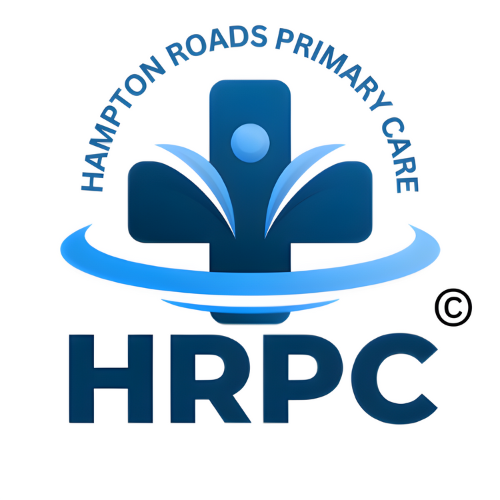Empowering You Through Knowledge
Education is at the heart of Hampton Roads Primary Care. We believe in empowering our patients and community with the knowledge to make informed health decisions. Explore our educational resources on important health topics:
Resources
Learn the Signs and How to Respond
Cardiac Arrest occurs when the heart abruptly stops beating, leading to a sudden loss of blood flow to the brain and other vital organs. Recognizing the early signs, such as sudden collapse, unresponsiveness, and absence of breathing or only gasping, is crucial for immediate response. Initiating CPR (Cardiopulmonary Resuscitation) promptly and calling emergency services can significantly increase the chances of survival. Education on using Automated External Defibrillators (AEDs) available in many public spaces can also make a life-saving difference. Empowering yourself and others with this knowledge is critical to saving lives in such emergencies.
Understanding Your Numbers and Their Impact
Understanding the numbers in a blood pressure reading is vital in managing high blood pressure, also known as hypertension. These numbers—the systolic and diastolic pressures—indicate the force of blood against your artery walls as your heart beats and rests, respectively. Consistently high readings, typically 130/80 mm Hg or higher, can lead to various health issues, including heart disease and stroke. Knowing your numbers and their implications can guide lifestyle changes and medical interventions, helping to mitigate these risks. Regular monitoring and consultations with healthcare providers are essential in managing your blood pressure effectively.
Prevention and Management Strategies
Heart disease remains a leading cause of mortality globally, but it is also one of the most preventable. Prevention and management strategies include adopting a heart-healthy lifestyle that emphasizes regular exercise, a nutritious diet low in trans fats, sodium, and sugars, and quitting smoking. Regular check-ups for monitoring heart health, managing conditions like hypertension or diabetes, and stress reduction techniques are equally important. Taking proactive measures and making informed lifestyle choices can play a significant role in preventing the onset of heart disease and managing its progression for those already diagnosed.
Early Detection and Prevention
The early detection and prevention of stroke are pivotal in minimizing its devastating impact. Recognizing the warning signs—such as sudden numbness, confusion, trouble speaking, seeing, walking, or severe headache—can be life-saving. Risk factors like hypertension, heart disease, smoking, and diabetes should be managed proactively. Adopting a healthy lifestyle that includes regular exercise, a balanced diet, and abstaining from smoking can significantly reduce the risk of stroke. Regular health screenings also play a crucial role in identifying and addressing the early onset of conditions that could lead to a stroke.
Tips and Support for Quitting
Quitting smoking is one of the best decisions you can make for your health, significantly reducing the risk of heart disease, stroke, and cancer. However, breaking the addiction is challenging and often requires a multifaceted approach. Setting a quit date, identifying triggers, and seeking support through family, friends, or support groups can increase your chances of success. Nicotine replacement therapies and prescription medications may help manage withdrawal symptoms and cravings. Remember, every attempt at quitting is a step forward, and numerous resources and healthcare professionals are ready to support you on your journey to becoming smoke-free.
Lifestyle Changes That Can Help
Heart disease remains a leading cause of mortality globally, but it is also one of the most preventable. Prevention and management strategies include adopting a heart-healthy lifestyle that emphasizes regular exercise, a nutritious diet low in trans fats, sodium, and sugars, and quitting smoking. Regular check-ups for monitoring heart health, managing conditions like hypertension or diabetes, and stress reduction techniques are equally important. Taking proactive measures and making informed lifestyle choices can play a significant role in preventing the onset of heart disease and managing its progression for those already diagnosed.


